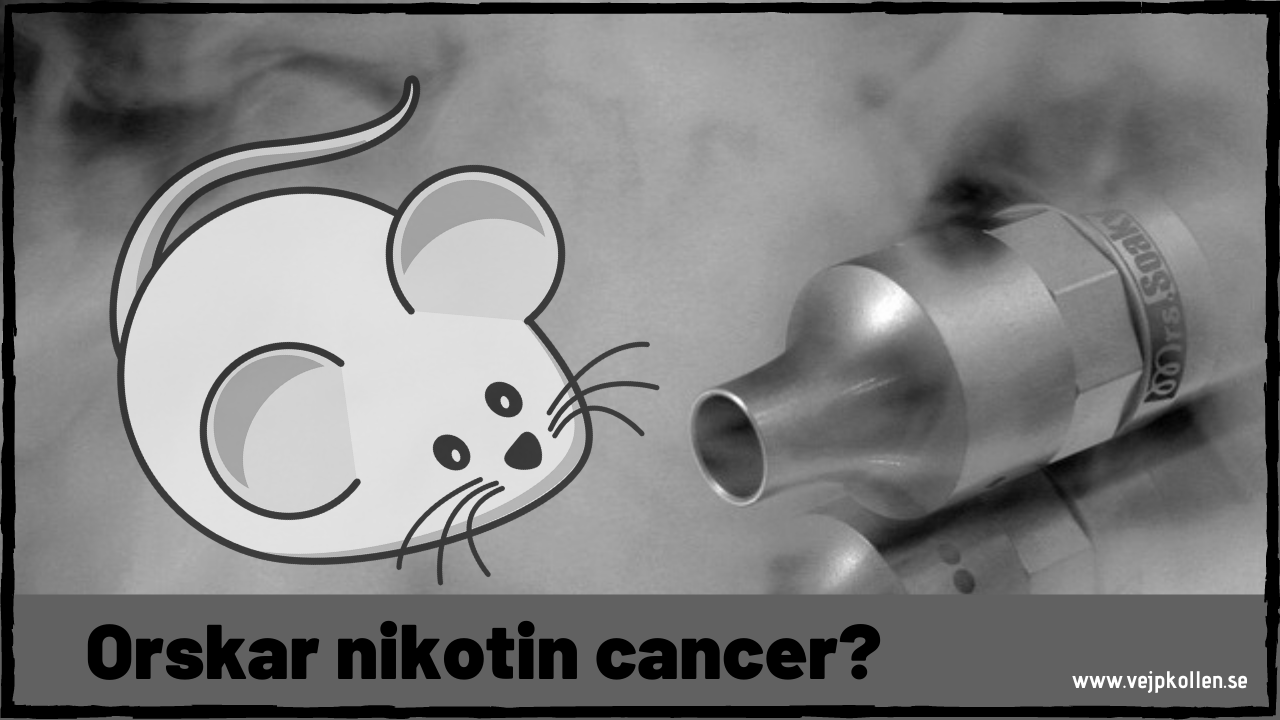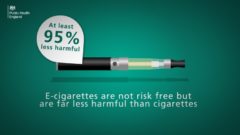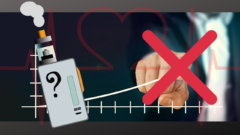'No greater than the risk of getting cancer by chance' say UK researchers
A recent study in mice showed a link between nicotine in e-cigarette vapour and lung cancer. However, the study has been criticised by several big names in modern research with long experience in e-cigarettes and health issues.
The US study received stor attention in the US media when it was published. In particular, in the context of the lung damage that was initially linked to the weaving in the country (autumn 2019). The study focuses on three groups of mice exposed to different types of vapour from e-cigarettes: nicotine-containing vapour, nicotine-free vapour and clean air. The mice in the nicotine group developed cancer at a higher rate than the clean air group. Surprisingly, the mice exposed to nicotine-free vapour developed the least amount of cancer of all three groups.
Excessive amounts of nicotine
According to the research team, their study is an indication that nicotine in e-cigarettes can be a danger to the user in the long run. But that conclusion is now being criticised. Peter Hajek is Professor and Director of the Tobacco Dependence Research Unit at Queen Mary's University in London.
"The mice in the study have been exposed to huge amounts and high concentrations of chemicals relative to their size. The conditions are not even close to what a regular e-cigarette user is exposed to," says Peter Hajek to Science Media Centre press office.
Minimal impact on cancer
Peter Hajek contrasts the current study with previous long-term studies involving active road users. The subject NNK, which is naturally present in nicotine, is carcinogenic in large quantities. It is this substance that the American researchers focused on. However, the British long-term study shows that the amount of carcinogenic substances in the body is significantly lower in road users than in smokers. Up to 450 times lower. These substances included NNK.
"The exposure to NNK was negligible. The substance was present in concentrations that have minimal impact on the development of lung cancer," Peter Hajek told the Science Media Centre.
Chance is more important
Peter Hajek is joined by John Britton, Director of the UK Centre for Tobacco and Alchohol studies. John Britton believes that the warning from the American researchers is greatly exaggerated. Especially in relation to the results presented by the researchers. And that e-cigarettes increase the risk of cancer, albeit marginally, is not exactly news, he says.
"It is possible that vapour from e-cigarettes slightly increases the risk of cancer compared to breathing clean air, of course. But based on this study, it is the risk is no greater than what could happen by pure chance., says John Britton to the Science Media Centre.
John Britton also says that the study is far too small and that the comparisons between air, nicotine-free vapour and nicotine-containing vapour are not statistically significant. He also points out the apparent strangeness of the fact that the mice exposed to nicotine-free vapour fared better than those breathing clean air.
"I suspect that these results are just scientific noise. This is not something that should matter when it comes to warning the public," says Mr Perez. John Britton.
No tar or carbon monoxide
According to Public Health England (PHE), e-cigarette vapour contains only 5% of the harmful substances found in regular cigarette smoke. According to its summary of hundreds of studies, neither tar nor carbon monoxide is present in e-cigarette vapour (if used correctly). The harmful substances that can be measured are at concentration levels between 9 and 450 times lower in tobacco smoke.
"It would be tragic if smokers, who would be able to quit with the help of an e-cigarette, fail to do so because of misinformation about the health risks" said John Newton, Head of the PHE's Health Prevention Department, to the Guardian newspaper in 2018.
Sources:
Study in mice links nicotine to cancer (Eureka Alert)
Long-term studies of carcinogens in e-cigarettes (Cancer Research UK)




